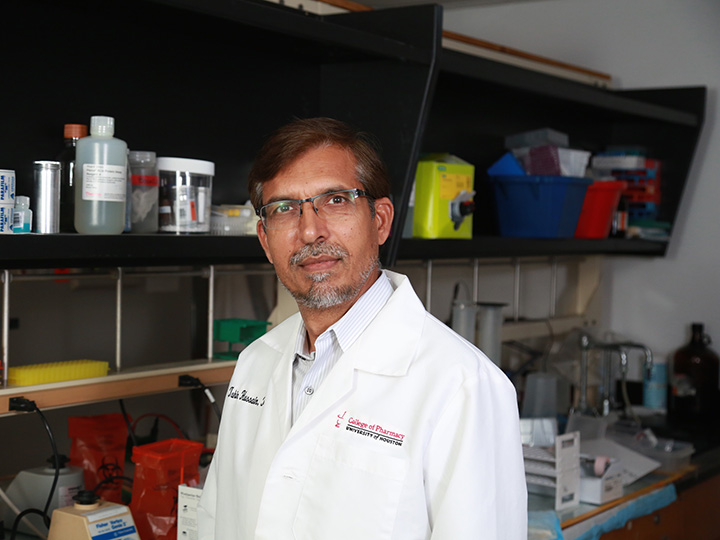
Tahir Hussain, a professor of pharmacology at University of Houston, is an alumnus of AMU.
Indian American Tahir Hussain, a professor of pharmacology at the University of Houston, has received a grant of $1.6 million the National Institutes of Health (NIH), for his research on protecting kidneys from obesity.
Hussain, a professor of pharmacology, will “examine a kidney cell that could prevent damage from inflammation caused by obesity,” the university said in a news release.
“What I’m proposing in this grant is that certain cells in the kidney can protect the kidney itself,” he said in the release.
Also Read: Indian American researchers at UPenn discover mitochondrial stress plays role in growth of cancer
Hussain, who completed B.Sc. in chemistry, and M.Sc., M.Phil. and Ph.D. in biochemistry from India’s Aligarh Muslim University, earned a post-doctorate in pharmacology from East Carolina University, Greenville.
According to Hussain, the cells that he has targeted express a protein called the angiotensin type 2 receptor (AT2R), which recently has been indicated to have anti-inflammatory and renoprotective actions. If activated, the AT2R will protect against chronic and acute kidney injury, he said.
Using the NIH grant, he will study the impact of inflammation in kidneys with activated AT2R as well as kidneys with no AT2R.
The professor said inherently in the body the expression of AT2R is low. “It’s weak,” said Hussain, “but because we know it has anti-inflammatory activity, we want to pump it up.” To strengthen it, he will use a drug that binds to it and activates it.
Also Read: 3 Indian American researchers named Fellows of Materials Research Society
Treatment for obesity-based disorders is costing $125 billion per year, as one-third of the population of United States is found to be obese. Obesity-induced disorder includes chronic and acute kidney injury, with the former causing irreversible damage and the latter usually reversible.
Chronic kidney injury is the result of progressive loss of kidney function whereas acute kidney injury is caused by abrupt loss of kidney function.
“Obesity is associated with low-grade chronic inflammation in the body,” said Hussain. “Up to half of the body’s inflammation comes from fat cells.”
According to Hussain, much of the inflammation is caused as a result of the body’s immune system cleaning up the fat cells that exploded, thus protecting the body from infection and illness. The larger fat cells also release inflammatory chemicals.
In addition to these factors, kidney also filters 45 gallons of blood every day, which can also have inflammatory molecules. That exposure can injure the kidneys.
“Once kidney injury starts, it does not stop. You can slow it down but you cannot stop it,” said Hussain.
Also Read: Indian researcher at Johns Hopkins develops world’s first 5D ultrasound system to assist cancer detection and treatment
Hussain is hopeful that his research will one day work to stop kidney disease caused by inflammation. “Once we study and better understand the AT2R as a target, making new prevention drugs would be easy,” he said.
Hussain earlier had shown that AT2R activation with drugs promotes sodium excretion into urine, helping to lower blood pressure. This is the first time the receptor’s role will be investigated to protect kidney structure and function against injury in obese subjects.



